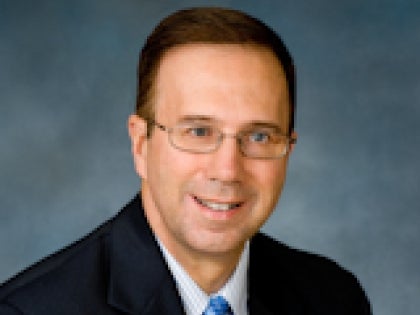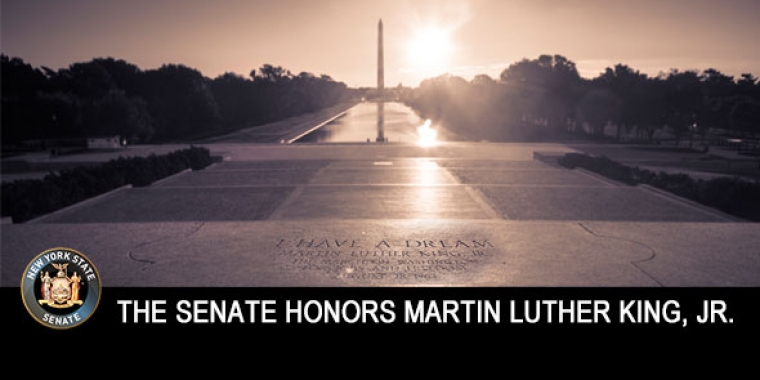
Senator Griffo's Weekly Column #3: Remembering Martin Luther King Jr.
Joseph A. Griffo
January 20, 2014
-
ISSUE:
- Civil Rights
- Constituents Corner

The Rev. Dr. Martin Luther Jr. often witnessed the worst of the human condition, yet still saw reason to be optimistic.
Dr. King lived with honorable purpose, in a way that ensured his teachings about peace, faith and service would endure long after his death.
Many of us will pause from work to honor Dr. King, who would have turned 85 last week.
In times of great turmoil and tension, Dr. King’s call for passive disobedience rose above the rest. He rejected, as extreme, the belief that African Americans could only achieve equality through violent means. Dr. King urged his brethren to win hearts and minds through nonviolent measures, and remained steadfast in that philosophy even when facing great societal pressure.
Dr. King faced imprisonment, beatings and death threats, but refused to succumb to the cynicism and hopelessness that had waylaid many would-be leaders before him.
“I refuse to accept the view that mankind is so tragically bound to the starless midnight of racism and war that the bright daybreak of peace and brotherhood can never become a reality,” he once said.
Dr. King recognized that the African Americans’ push for self-respect and true equality couldn’t be accomplished if selfishness and inaction won out.
“History will have to record that the greatest tragedy of this period of social transition was not the strident clamor of bad people, but the appalling silence of the good people,” he said. “The ultimate measure of a man is not where he stands in moments of comfort and convenience, but where he stands at times of challenge and controversy.”
In promoting the whole over the individual, Dr. King became perhaps history’s great advocate for public service, saying, “Life’s most persistent and urgent question is: ‘What are you doing for others?’”
Many of Dr. King’s disciples hear that call – and heed it – to this day. The Martin Luther King Day of Service coincides with the national holiday.
It would be easy to share Dr. King’s optimism toward humanity for one day. He challenges us, however, to embody these ideals of service over self for a lifetime.
“Whatever your life’s work is, do it well,” he once said. “A man should do his job so well that the living, the dead and the unborn could do it no better.”


